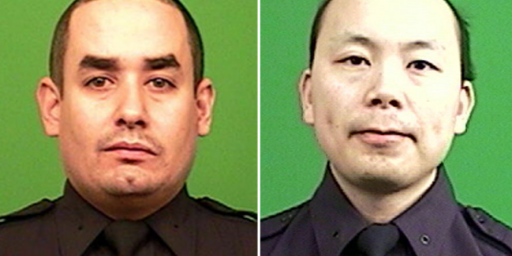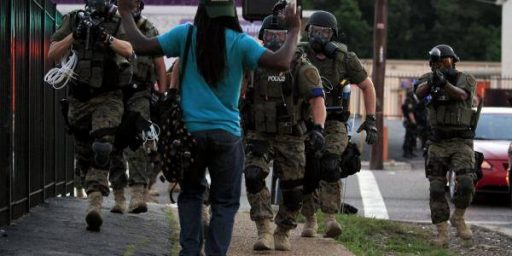POLICE AS QUALITY-OF-LIFE PROGRAM
In his profile of former-NYC and now LA police chief William Bratton, George Will makes an unusual assertion:
No aspect of contemporary governance–in the delivery of education, medical care, housing or even welfare services–has achieved progressive successes as dramatic as has policing. These have been progressive in that their benefits have accrued disproportionately to persons particularly disadvantaged and vulnerable to injury, including deprivation of liberty, property and life by crime.
Between 1991 and 1999 more professional policing, with an assist from demogra phy (fewer young males), reduced violent crime nationally more than 25 percent. In New York City between 1993 and 2001, thanks largely to measures instituted while Bratton was Mayor Rudy Giuliani’s police commissioner between 1994 and 1996, crime was reduced 64 percent–including a 75 percent decrease in gun homicides.
This change, of a magnitude that social science rarely records, primarily benefited low-income minorities living in neighborhoods infested with predators–mostly minority predators preying on minorities. The facts of crime refute the “progressive” myth of the equal susceptibility, at any time, of all social groups to antisocial behavior.
But successful policing, which led to “disparate” arrest patterns, produced complaints about police. Complainers cited the disparities as prima facie proof of racial profiling. But the racial profile of the beneficiaries of better policing is: mostly minorities, released from imprisonment in their homes, free to venture into the streets of revitalized neighborhoods.
For a trenchant appraisal of Bratton’s achievement, and more, read Heather Mac Donald’s book “Are Cops Racist? How the War Against the Police Harms Black Americans,” in which she demolishes the myth of pervasive racial profiling. She warns: “If the police are now to be accused of racism every time they go where the crime is, that’s the end of public safety.” And of the urban renaissance that owes much to more intelligent policing.
Interesting.






I’ve only heard of this book once before–I believe when the author was on the Larry Elder radio show. Certainly it was he who mentioned it–this is exactly his sort of thing.
—